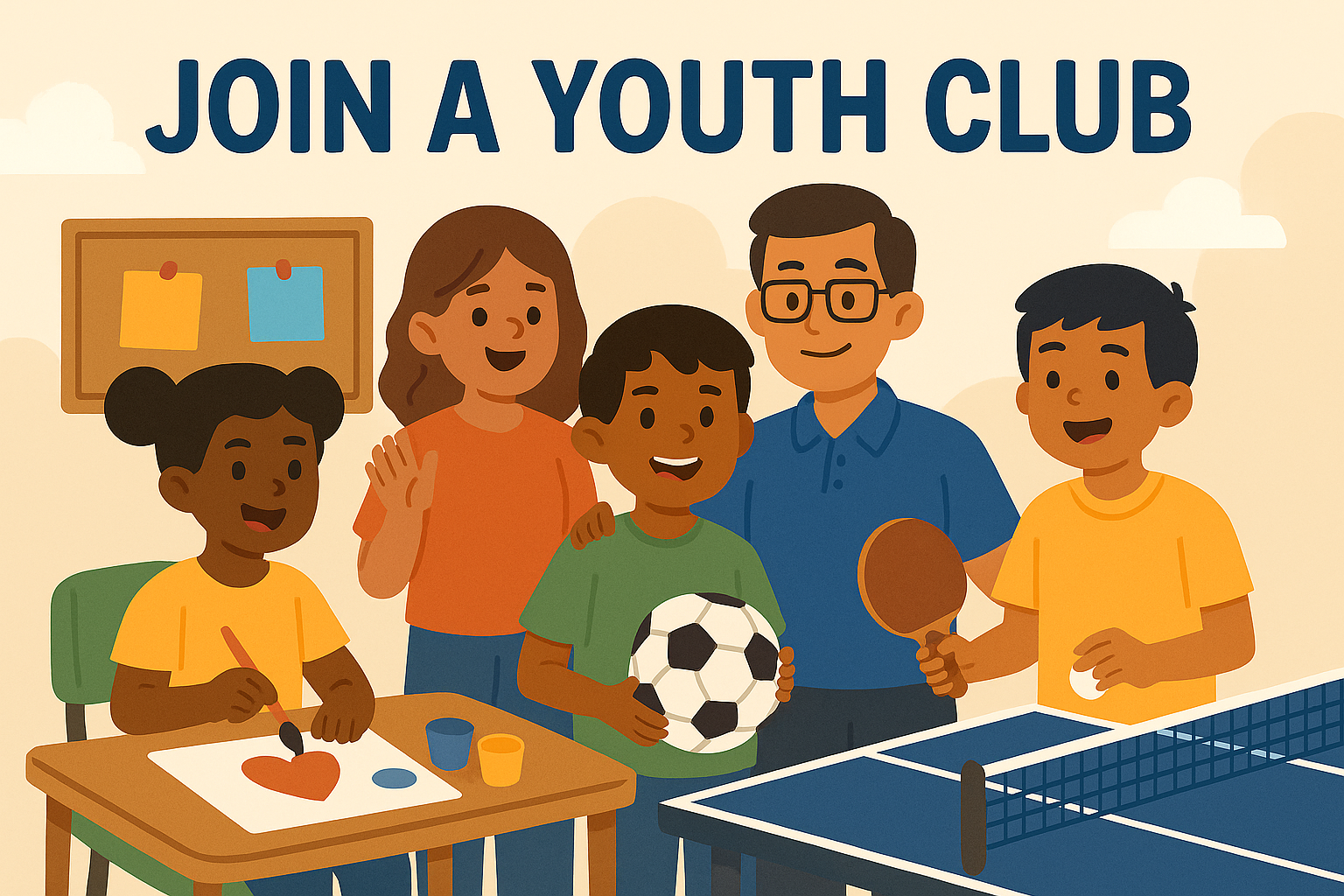Youth clubs provide a fun, welcoming environment where children and young people can be themselves.
These sessions often include a mix of free play, group games, crafts, sports, and occasional outings — all supported by friendly youth workers who help guide activities and encourage positive social interaction.
Youth clubs are especially valuable for pre-teens seeking independence, friendship and support in a safe and relaxed setting. They also build life skills like teamwork, decision-making and responsibility — all through play and connection.
Why It’s Great
- Friendship & Belonging – Offers a supportive space outside of school where children can connect with peers.
- Life Skills – Encourages confidence, communication and decision-making through informal learning.
- Positive Role Models – Youth workers provide encouragement and support without judgement.
- Free Time with Structure – Combines choice-led fun with optional group activities.
How to Get Started
- Search online or ask your local council, school or library about nearby youth clubs.
- Most clubs are open to children aged 8+ and run once or twice per week.
- Sessions are often low-cost or donation-based — and may include snacks or themed evenings.
- Drop-off is common, but some younger children may benefit from a parent or carer staying initially.
Variations
- Faith-Based Youth Groups: Many churches or mosques host inclusive community youth sessions.
- SEN-Focused Clubs: Some offer adapted spaces for children with additional needs.
- Themed Nights: Clubs often run nights based on music, film, cooking or crafts.
Safety Tips
- Check the club is led by DBS-checked youth workers and follows safeguarding procedures.
- Children should know who the adults in charge are and how to ask for help if needed.
- Encourage open conversation with your child about what they enjoy (or don’t) about their time there.


Leave a Reply